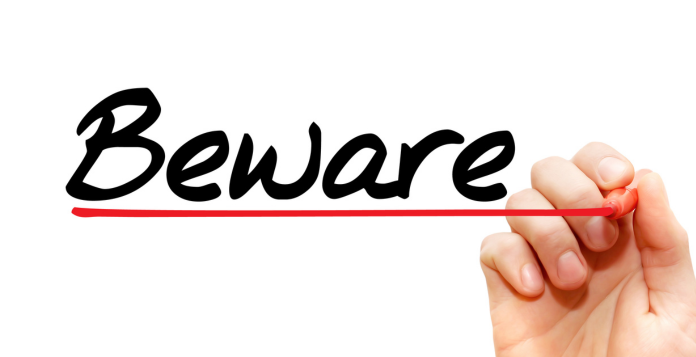The Dangers of Using an Unregulated Property Professional
- by Bhavi Bhudia
- Hits: 2069

Buying or selling a property is one of the most significant financial transactions that most people will ever undertake. It involves a considerable amount of money, legal processes, and complex negotiations.
As a result, it is crucial to have the guidance and expertise of a property professional to navigate through the intricacies of the real estate market. While there are many reputable and regulated property professionals available, there exists a dark side to the industry as well – the unregulated property professionals. These individuals or agencies may seem appealing due to lower costs or promises of quick and easy deals, but using their services can lead to a range of dangers and potential pitfalls that can leave clients vulnerable and financially devastated.
Lack of Qualifications and Expertise:
One of the most significant risks of dealing with an unregulated property professional is the lack of qualifications and expertise they may possess. Unlike regulated professionals such as propertymark real estate agents or property lawyers, unregulated individuals are not required to meet any specific educational or experiential standards. They may lack the necessary training and knowledge to handle complex transactions or understand the legal intricacies involved in property deals. As a result, clients may find themselves at a severe disadvantage when it comes to negotiating contracts, conducting due diligence, or understanding their rights and obligations.
No Accountability or Code of Conduct:
Regulated property professionals are bound by a strict code of conduct that governs their behavior and ethics in the industry. They are accountable to professional bodies or licensing authorities, and any misconduct or malpractice can lead to disciplinary actions, fines, or even license revocation. On the other hand, unregulated property professionals operate outside of these regulations and have no such accountability. This lack of oversight can result in unethical practices, undisclosed conflicts of interest, or even fraudulent behavior that may harm their clients.
Potential for Fraud and Scams:
The lack of regulation in the real estate industry opens the door to fraudulent activities and scams. Unregulated property professionals may engage in dishonest practices such as misleading clients about property values, charging excessive fees without providing adequate services, or misrepresenting property details to close a deal quickly. Since they are not subject to any regulatory oversight, it becomes challenging for clients to seek redress or take legal action against these unscrupulous individuals or agencies.
Inadequate Consumer Protection:
Regulated property professionals often have professional indemnity insurance, which provides protection to clients in case of negligence or errors on the part of the professional. This insurance can offer recourse for clients who suffer financial losses due to mistakes made by the professional. Unregulated property professionals, however, are not required to carry such insurance, leaving clients exposed to significant risks if things go wrong during the transaction. In the absence of consumer protection measures, clients may have limited options for recovering their losses.
Unclear or Nonexistent Terms and Conditions:
Regulated property professionals typically provide clients with clear and standardized terms and conditions outlining the scope of their services, fees, and responsibilities. This transparency helps clients make informed decisions and understand what to expect from the professional relationship. In contrast, unregulated property professionals may not offer well-defined terms and conditions, leading to confusion and disputes later on. Clients may find themselves unexpectedly burdened with hidden costs or unexpected obligations due to the lack of clear communication.
Possibility of Unregulated Operations:
Some unregulated property professionals may not hold the required memberships to operate legally in the real estate industry. Operating without these can have severe consequences for both the professional and their clients. Transactions conducted by unregulated individuals may be deemed invalid, resulting in potential legal battles and financial losses for clients. It is essential for consumers to verify the credentials of any property professional they consider working with to avoid falling victim to unregulated operators.
Limited Legal Recourse:
When dealing with regulated property professionals, clients have access to a variety of dispute resolution mechanisms, including professional bodies, ombudsman services, and courts. These avenues provide a formal process for resolving conflicts and seeking compensation for any wrongdoing. In contrast, unregulated property professionals may not be subject to the same oversight or dispute resolution mechanisms, making it challenging for clients to seek legal recourse in case of disputes or grievances.
Conclusion:
In the world of real estate, choosing the right property professional is of utmost importance. While regulated professionals offer a level of accountability, expertise, and consumer protection, the dangers associated with using an unregulated property professional cannot be ignored. From potential fraud and scams to lack of qualifications and inadequate consumer protection, the risks involved can have devastating consequences for clients. To safeguard their interests and investments, individuals looking to buy or sell property should always opt for the services of regulated and reputable property professionals who adhere to the industry's best practices and ethical standards. Doing so will not only provide peace of mind but also increase the chances of a successful and secure real estate transaction.
